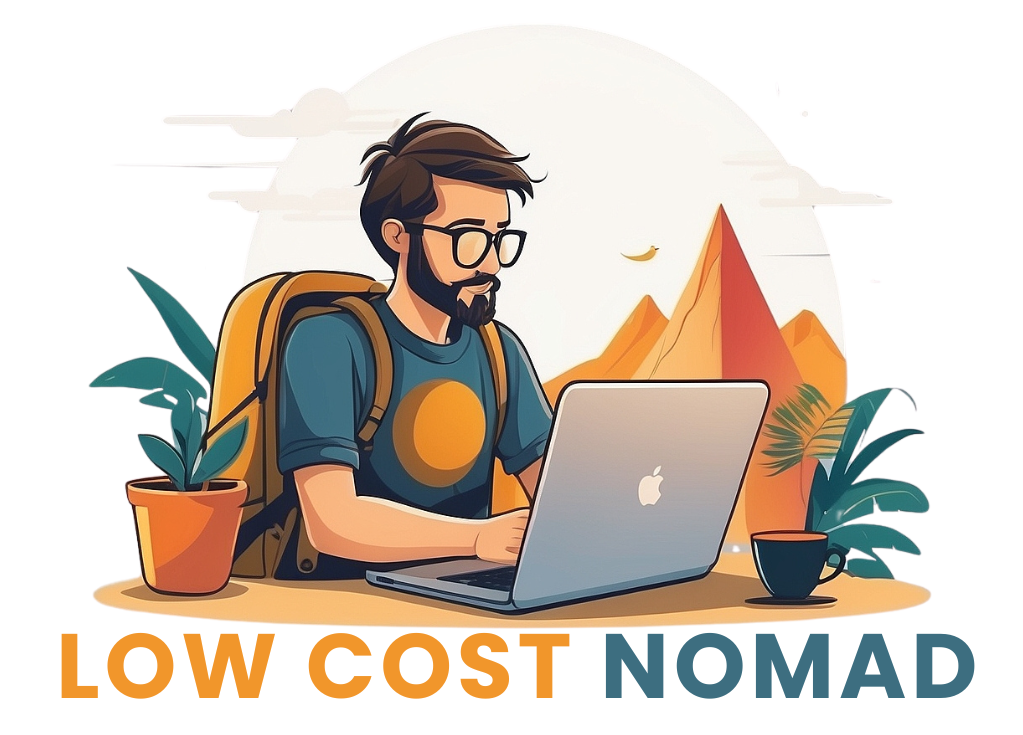Digital Nomad Jobs: What Work Can You Do While Traveling the World?
Imagine this: your office is a beach in Thailand, a cozy cafe in Paris, or a mountain cabin in the Alps. This is the dream for many people who identify as a digital nomad. A digital nomad is someone who uses technology to work remotely, allowing them to travel and live in different locations without being tied to a specific office. It sounds amazing, right? But the big question is: what kind of work do these globe-trotting professionals actually do? If you’re thinking about becoming a digital nomad or are just curious, you might wonder, “What jobs can I do as a digital nomad?” The good news is that the possibilities are more varied than you might think. Technology has opened up a huge world of opportunities for working from anywhere.
What Exactly is a Digital Nomad?
Before we dive into the jobs, let’s quickly clarify what a digital nomad is. It’s not just someone on vacation who checks email. A digital nomad is someone who lives a location-independent lifestyle, meaning they can work from anywhere in the world as long as they have an internet connection. Their work is typically online or project-based, allowing them the flexibility to choose where they live and work. They often travel continuously or live in different places for months at a time, experiencing new cultures and seeing the world while earning a living. They use laptops, smartphones, and the internet as their main tools.
Why Do People Become Digital Nomads?
People choose the digital nomad life for many reasons. The main ones usually involve freedom and flexibility. The freedom to travel whenever and wherever they want, the flexibility to set their own schedule, and the chance to escape the traditional 9-to-5 office routine are big draws. It’s also about experiencing new things, meeting people from around the world, and often having a lower cost of living in certain countries compared to their home country. While it requires discipline and planning, the lifestyle offers unique rewards that a standard job often doesn’t.
Types of Work Digital Nomads Do
So, how do these folks make money? The work generally falls into a few main categories:
- Freelancing/Contracting: This is very common. A digital nomad works for multiple clients on a project-by-project basis. They are their own boss and find work through platforms, networking, or direct outreach.
- Remote Employee: Some digital nomads work full-time for a company that allows them to work remotely. The company might be in their home country or anywhere else. They are an employee but don’t need to be in the office.
- Online Business Owner: Many digital nomads create and run their own online businesses. This could be selling products (e-commerce), running a blog, creating online courses, or offering consulting services.
- Creative/Influencer: Some make money through creating content online, like running a popular blog, YouTube channel, or social media account, earning from ads, sponsorships, or selling related products.
Most jobs that can be done primarily using a computer and the internet are potential digital nomad jobs. Let’s explore some specific examples of roles and industries that are popular among location-independent workers.
Popular Digital Nomad Jobs and Industries
Here is a look at specific jobs and fields where you can often find remote work opportunities suitable for a digital nomad lifestyle. We’ll break them down into categories to make it easier to understand.
Writing and Editing Jobs
If you have a way with words, there’s a huge demand for remote writers and editors. Businesses, blogs, and publications constantly need content. As a digital nomad writer, all you really need is your laptop and a good internet connection.
- Freelance Writer: This is a broad term. You could write articles, blog posts, website content, marketing materials (copywriting), scripts, or even books. Clients range from small startups to large companies. You find projects and get paid per word, per article, or per project.
- Copywriter: Focused on writing persuasive text for advertising and marketing. This includes landing pages, emails, social media ads, and sales pages. Good copywriters are highly valued and can command good rates.
- Editor/Proofreader: If you have a sharp eye for grammar, spelling, and style, businesses and writers need editors to polish their work before it’s published.
- Blogger: While becoming a full-time blogger takes time to build an audience, many digital nomads start blogs about their travels or expertise and eventually make money through ads, affiliate marketing, or selling their own products/services.
- Technical Writer: Creating user manuals, guides, and documentation for technical products. Requires understanding complex information and explaining it simply.
Many digital nomads start their remote work journey with writing gigs because the entry barrier can be relatively low compared to some other fields, though building a portfolio and finding consistent clients takes effort.
Design and Multimedia Jobs
Creative skills are also highly sought after in the remote work world. If you’re good with visuals, there are many options.
- Graphic Designer: Creating logos, website layouts, social media graphics, print materials, branding, and illustrations. You need design software and a portfolio. Many businesses hire freelance graphic designers for specific projects.
- Web Designer: Focusing on the look and feel of websites, user experience (UX), and user interface (UI). This often involves understanding design principles and sometimes a bit of coding (like HTML and CSS), but the main focus is the visual layout and usability.
- Video Editor: With the rise of video content (YouTube, social media, online courses), skilled video editors are in high demand. You can edit vlogs, marketing videos, educational content, and more. Requires video editing software and a powerful-enough laptop.
- Photographer/Videographer: While not purely online, many photographers and videographers travel the world for shoots (weddings, events, tourism) or sell their stock photos/videos online. They often spend time in their base location for editing and administrative tasks.
These roles require specific software skills, but they offer great flexibility for creative individuals who want to work from anywhere. A strong portfolio is key to landing these digital nomad jobs.
Web Development and Programming
Tech skills are arguably the most in-demand skills for remote work. If you can build or maintain software and websites, you have many digital nomad options.
- Web Developer: Building websites and web applications. This can range from front-end development (what the user sees and interacts with) to back-end development (the server side, databases, etc.) to full-stack (both). Requires knowledge of coding languages like HTML, CSS, JavaScript, Python, Ruby, etc.
- Software Developer: Building applications for computers, mobile devices, or specialized systems. This is a vast field with many specializations.
- Mobile App Developer: Creating applications specifically for iOS and Android devices.
- DevOps Engineer: Focused on the processes of software development and IT operations. Often involves managing servers, cloud infrastructure (like AWS, Google Cloud), and automation.
- QA Tester: Testing software and websites to find bugs and ensure they work correctly. Requires attention to detail and understanding of testing processes.
Tech roles often pay well and are inherently location-independent, making them ideal for the digital nomad lifestyle. Many tech companies are built around remote teams.
Marketing and Social Media Jobs
Helping businesses get noticed online is another area with extensive remote work possibilities.
- Digital Marketing Specialist: A broad role that can involve strategy, planning, and executing online marketing campaigns across various channels.
- SEO Specialist: Helping websites rank higher in search engines like Google. Requires understanding algorithms, keywords, and website optimization.
- Social Media Manager: Managing social media accounts for businesses or individuals. This includes creating posts, scheduling, engaging with followers, and running ads. Requires creativity and understanding of different platforms.
- Content Marketing Manager: Planning, creating, and distributing valuable content (articles, videos, podcasts, etc.) to attract and engage a target audience.
- Paid Advertising Specialist (PPC): Managing online advertising campaigns on platforms like Google Ads, Facebook Ads, Instagram Ads, etc. Requires analytical skills and understanding of ad platforms.
- Email Marketing Specialist: Creating and managing email campaigns to nurture leads and engage customers.
Marketing is a dynamic field that constantly evolves, offering many niches for a skilled digital nomad.
Virtual Assistant and Administrative Support
Many busy individuals and businesses need help with daily tasks, and they are happy to hire remote assistants.
- Virtual Assistant (VA): Provides administrative, technical, or creative assistance remotely. Tasks can vary widely, including managing emails and calendars, scheduling appointments, making travel arrangements, data entry, research, social media support, and even basic graphic design or writing.
- Executive Assistant: Providing high-level administrative support to executives, often involving more complex tasks and requiring discretion.
- Project Manager: Coordinating teams and projects remotely, ensuring tasks are completed on time and within budget. Requires strong organizational and communication skills.
Virtual assistant roles are often a great entry point into the world of remote work and can easily be done by a digital nomad with good organizational skills.
Teaching and Tutoring Online
Sharing your knowledge is another way to earn money while traveling.
- Online Tutor: Teaching subjects like English, Math, Science, or test preparation to students of all ages via video calls. Platforms connect tutors with students worldwide.
- Online Course Creator: Developing and selling your own courses on platforms like Teachable, Udemy, or Skillshare, or even your own website. You create the content once and can earn passive income as people buy it.
- Language Teacher: Teaching your native language (like English) to non-native speakers online is very popular.
- Music or Art Instructor: Teaching music lessons, drawing, painting, or other creative skills online.
If you enjoy teaching and explaining things, these roles are perfectly suited for a digital nomad.
Consulting
If you have expertise in a specific area, you can offer consulting services to businesses remotely.
- Business Consultant: Advising businesses on strategy, operations, marketing, or other areas.
- IT Consultant: Providing expertise on technology systems, software implementation, cybersecurity, etc.
- Marketing Consultant: Advising businesses on their marketing strategies.
- Career Coach or Life Coach: Helping individuals achieve their professional or personal goals through online sessions.
Consulting often requires significant experience in your field, but it’s a high-value service that fits well with the digital nomad lifestyle.
Customer Support
Many companies hire remote workers to handle customer inquiries and issues.
- Remote Customer Service Representative: Answering customer questions, resolving issues, and providing support via phone, email, or chat. Requires good communication and problem-solving skills.
- Technical Support Specialist: Providing technical assistance to users of a product or service.
While sometimes requiring specific shift coverage, many customer support roles offer the flexibility needed by a digital nomad.
Translation
If you are fluent in more than one language, translation services are needed globally.
- Freelance Translator: Translating documents, websites, or other content from one language to another.
- Interpreter: Providing interpretation services, sometimes remotely via video or phone.
Being bilingual or multilingual is a valuable asset for a digital nomad.
eCommerce and Online Retail
Running an online store can be done from anywhere.
- Dropshipping: Setting up an online store where you sell products but don’t hold inventory. When a customer buys something, the supplier ships it directly to them. Your job is marketing and customer service.
- Selling Digital Products: Creating and selling e-books, software, templates, music, or art files online.
- Running an Etsy Shop or similar: Selling handmade or curated goods online.
Managing an online business allows for significant location independence, fitting the digital nomad model perfectly.
Other Niche Digital Nomad Jobs
Beyond these common categories, many other specialized roles can be done remotely. Think about your skills and how they might translate to online work. Examples include:
- Online Recruiter
- Podcast Producer/Editor
- Data Analyst
- Accountant or Bookkeeper
- Travel Planner (specializing in remote workers/digital nomads)
- Fitness Coach or Nutritionist (offering online sessions)
The key is often identifying a skill you have that can be delivered digitally to clients or employers anywhere in the world.
Finding Digital Nomad Jobs
Once you know what kind of work you want to do, where do you find these remote opportunities? There are many resources available:
- Freelance Platforms: Websites like Upwork, Fiverr, Freelancer.com connect freelancers with clients looking for various services (writing, design, development, admin, etc.).
- Remote Job Boards: Websites specifically list remote positions, such as Remote.co, We Work Remotely, FlexJobs, and Jobspresso.
- Company Websites: Many companies that hire remotely list open positions on their own career pages.
- Networking: Connecting with other digital nomads and professionals online or in person can lead to opportunities.
- Building Your Own Platform: Creating a website, blog, or social media presence to showcase your skills and attract clients directly.
Finding your first remote job or client takes persistence, but there are many avenues to explore.
Skills Needed to Succeed as a Digital Nomad
While technical skills for your specific job are essential, certain soft skills are crucial for succeeding in the digital nomad lifestyle:
- Self-Discipline: Working without a boss looking over your shoulder requires you to manage your own time and stay focused.
- Time Management: Juggling work deadlines, client communication, and exploring new places requires excellent organizational skills.
- Communication: Clear and timely communication with clients or employers is vital, especially when working across different time zones.
- Adaptability: You need to be comfortable with change – changing locations, dealing with unreliable internet, navigating new cultures, and adapting to different work styles.
- Problem-Solving: Things will go wrong (technology issues, travel delays), and you need to be able to figure things out independently.
- Networking Skills: Building connections, both professionally and socially, is important for finding work and combating potential loneliness.
- Financial Management: You need to budget carefully, handle currency conversions, and manage potentially inconsistent income.
Developing these skills is just as important as honing your job-specific abilities if you want to thrive as a digital nomad.
Challenges and Benefits of Being a Digital Nomad
It’s important to have a realistic view. The digital nomad life isn’t without its challenges, but the benefits are often considered well worth it by those who pursue it.
Benefits:
- Freedom to Travel: The most obvious perk. See the world while you work.
- Flexibility: Set your own hours, work from where you choose (within reason).
- Cultural Immersion: Live like a local in different countries, not just visit as a tourist.
- Potential Lower Cost of Living: Many popular digital nomad destinations are more affordable than Western cities.
- Diverse Experiences: Your daily life is constantly changing and full of new adventures.
- Professional Growth: Learning to be adaptable, self-reliant, and manage remote work challenges can boost your career skills.
Challenges:
- Instability: Income can be unpredictable, especially for freelancers.
- Isolation: It can sometimes be lonely constantly being in new places and away from established friends and family.
- Finding Consistent Work: Requires constant effort to market yourself and find clients.
- Time Zone Differences: Can make scheduling meetings with clients or colleagues tricky.
- Visa Issues: Many countries don’t have specific “digital nomad visas,” requiring navigating tourist visa limits.
- Finding Good Internet/Workspace: Not every location has reliable internet or comfortable places to work.
- Maintaining Routines: It can be hard to establish consistent habits (like exercise or diet) when constantly moving.
Understanding these points helps paint a full picture of the digital nomad lifestyle.
Getting Started on Your Digital Nomad Journey
If reading about these jobs makes you excited about the possibility of becoming a digital nomad, how do you begin?
- Identify Your Skills: What are you good at? What could you potentially do remotely?
- Gain Experience: If your skills aren’t quite ready for remote work, take courses, build projects, or find local jobs that will help you develop them.
- Build a Portfolio or Resume: Showcase your best work or experience in a way that’s easy for potential clients/employers to see.
- Start Small (Maybe): You might not quit your job and fly away tomorrow. Some people start by taking on small freelance projects alongside their regular job or asking their current employer about remote work options.
- Research Destinations: Look into places popular with digital nomads to understand costs, visas, and internet availability.
- Join Digital Nomad Communities: Online forums and groups can offer advice, support, and networking opportunities.
Becoming a digital nomad is a journey that requires planning and effort, but it’s achievable for many.
Conclusion
So, what jobs can you do as a digital nomad? The answer is: many more than ever before! From writing and designing to coding and consulting, the world of remote work is vast and growing. The key is to identify your skills, build your experience, and find opportunities that allow you to work independently using technology. While the dream of working from a beach is real for some, the reality involves hard work, self-discipline, and overcoming challenges. However, for those seeking freedom, adventure, and the chance to see the world without putting their career on hold, the digital nomad lifestyle offers incredible possibilities. If you have a marketable skill and a desire for adventure, the path to becoming a location-independent professional is definitely one worth exploring.




